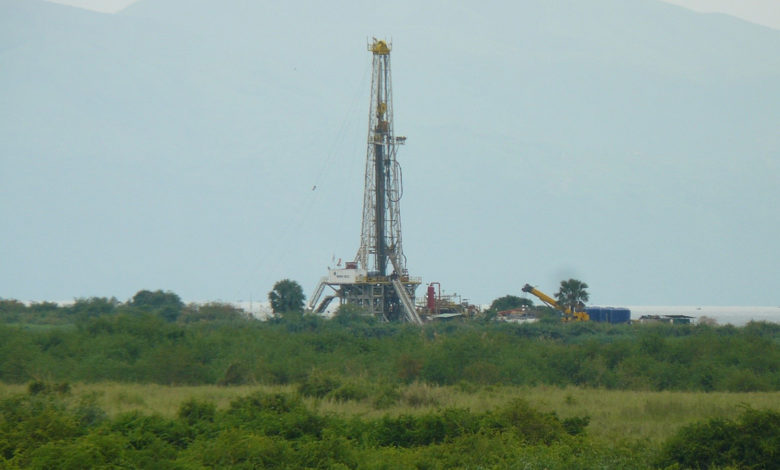Human activities continue to escarbate climate change impacts
The effects of climate change in Uganda are increasingly severe, affecting the lives of the country's citizens and its environment.

By Patience Katusiime
The effects of climate change in Uganda are increasingly severe, affecting the lives of the country’s citizens and its environment.
It has led to extreme weather events such as unpredictable, prolonged drought and rainfall. Uganda’s climate is mostly tropical with regular rainfall and sunshine patterns.
Due to climate change the seasons have changed, with the rainy season becoming more variable in length and droughts more ubiquitous, especially in eastern and northeastern Uganda. Climate trends have the potential to affect development of Uganda, due to the vulnerability of Uganda’s diverse environment.
Climate is changing and humans are responsible. With eight billion people on the planet, we have never seen climate changing as this fast.
In its last report in 2021, the Intergovernmental Panel on Climate Change (IPCC) warned that human activity is changing the climate in unprecedented and sometimes irreversible ways.
Scientists said that drastic emissions reductions were needed this decade to keep global warming below 1.5C and protect the world’s most vulnerable ecosystems and communities.
As of today, around 15% of global energy-related greenhouse gas emissions come from the process of getting oil and gas out of the ground and to consumers. A large part of these emissions can be brought down relatively quickly and easily.
Human activities such as deforestation especially increased destruction of bugoma forest for sugarcane growing, increased industrialization in the country, wetland degradation are a problem.
According to a report by the Ministry of Water and Environment, Uganda will be left with only 1.6% of wetlands cover by 2040 if the destruction trend is not reversed by the deliberate and dedicated restoration programs countrywide, oil extraction, refining and burning of fossil fuels, are indeed exacerbating climate change impacts.
The main contributor to climate change is the release of greenhouse gases, particularly carbon dioxide, into the atmosphere. The burning of oil release significant amounts of CO2 (carbon dioxide), which traps heat in the Earth’s atmosphere, leading to global warming.
Oil extraction like Fracking releases methane, a potent greenhouse gas that has a more significant warming effect than carbon dioxide (CO2). Methane leaks from wells, pipelines, and storage facilities can occur during all stages of oil production, transportation, and use.
The resulting climate change impacts include rising global temperatures, melting icecaps, and glaciers, sea-level rise, more frequently and intense extreme weather events such as droughts, disruption of the ecosystems and biodiversity loss, and negative social economic consequences.
Climate change and changes in temperature is also affecting the Rwenzori Mountains, by causing glacier melting, increasing water levels in the Nyamwamba, Mubuku, and Ruimi Rivers. This has led to frequent flooding across the Rwenzori region all the time.
The Climate Change 2023 from the Synthesis Report reiterates that humans are responsible for all global heating over the past 200 years leading to a current temperature rise of 1.1°C above pre-industrial levels, which has led to more frequent and hazardous weather events that have caused increasing destruction to people and the planet.
The report reminds us that every increment of warming will come with more extreme weather events. The report outlines that the 1.5°C limit is still achievable and outlines the critical action required across sectors and by everyone at all levels.
The report focuses on the critical need for action that considers climate justice and focuses on climate resilient development.
The scale of the climate challenge requires a broad coalition encompassing governments, investors, companies and everyone else who is genuinely committed to reducing emissions and mitigate climate change impacts.That effort requires the oil and gas industry to be firmly and fully on board.
The oil and gas industry now needs to make clear what clean energy transitions mean for it and what it can do to accelerate clean energy transitions. The first immediate task for all parts of the industry is reducing the environmental footprint of their own operations.
Time is running out for the easier solutions and the more gradual transitions to a carbon free economy. Oil and gas companies are facing a critical challenge as the world increasingly shifts towards clean energy transitions.
Fossil fuels drive the companies’ near-term returns, but failure to address growing calls to reduce greenhouse gas emissions could threaten their long-term social acceptability and profitability.
Climate finance is crucial to help communities cope, but is not a replacement to cutting emissions and ending the fossil fuels dependency which is the root cause of the climate crisis.
To mitigate these impacts of greenhouse gas emissions is possible, through transitioning to cleaner and renewable energy sources. Uganda is endowed with abundant renewable energy sources such as solar wind, hydro and geothermal power.
Embracing these clean and sustainable alternatives will provide a Viable Pathway to Meet Our Energy Needs without Polluting the Environment. This involves reducing fossil fuel consumption, investing in renewable energy technologies, Ecosystem restoration and adopting sustainable practices to address climate change and protect the Environment.
Patience Katusiime is the Program assistant at Environment Governance Institute Uganda
pkatusiime1@gmail.com







